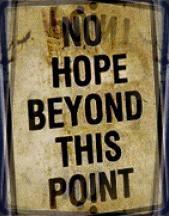Today the Public Discourse carries my review essay on Joseph Bottum’s An Anxious Age. My verdict: “a bad book with a good book trapped inside it, struggling to get out.”
First, the good. Bottum has some very insightful observations on religion and secularism in America that challenge prevailing assumptions. They challenged my own assumptions as well; Bottum has persuaded me of his thesis that today’s secular progressivism is simply a de-Christianized continuation of the social gospel religion of oldline Protestantism:
The social gospel movement was dominated by a religious anxiety that secular progressivism has inherited—hence the book’s title. This anxiety manifests itself in the view that Americans are complacent in the face of innumerable evil forces surrounding us every day. Our nation floats comfortably atop a sea of poverty and wretchedness, oblivious to injustices past and present. Judgment and wrath are upon us as a people. But a chosen few can be saved: those who raise awareness, denounce the nation’s historical wrongs, and stand in opposition to demonic social structures like “corporate America.”
But the book is disorganized and poorly developed, asserts a great deal without providing footnotes or citations that would allow us to find out more (or check Bottum’s work), and exhibits a really disappointing prejudice – as unexamined as it is uncharitable – against Protestantism. But the main failure is a failure of hope:
It is a surprising failure. Bottum’s diagnosis of the malady ailing our culture cries out for the physician to prescribe massive doses of hope. When will a Christian turn to hope, if not in a book about a culture crippled by religious anxiety?
It is also an ironic failure. Bottum himself—unconsciously, perhaps—shows us again and again why we need hope and how we can live it out. You can see it in his critique of narrow-minded sociologists of religion, who will believe anything before they believe religion exerts an exogenous influence upon culture. You can see it in his portraits of young Catholics learning to live their faith in a way that can speak coherently to the secular class.
But you can especially see it in his magnificent chapter on John Paul II…
Bottum relates a story in which the young John Paul spends several days in January 1945 cleaning an enormous pile of frozen-solid human waste out of an abandoned seminary building; the Nazis had fled Cracow and the local bishop was rushing to reclaim the building before the Soviet army marched in and took it. I see in this story a metaphor for our own position in the culture, especially in the deep reserves of hope we need to have when we face the world’s darkest hours.
